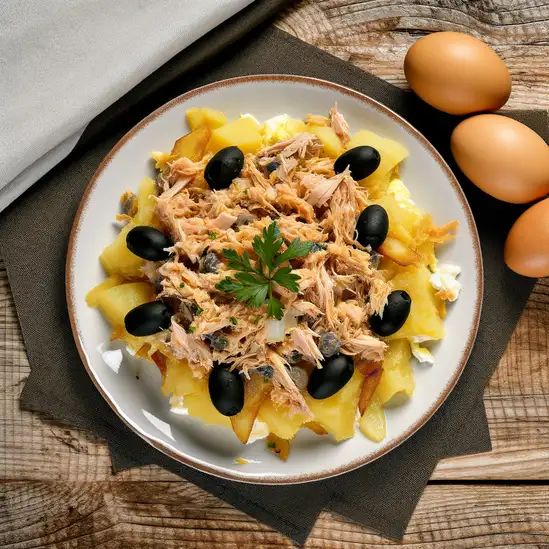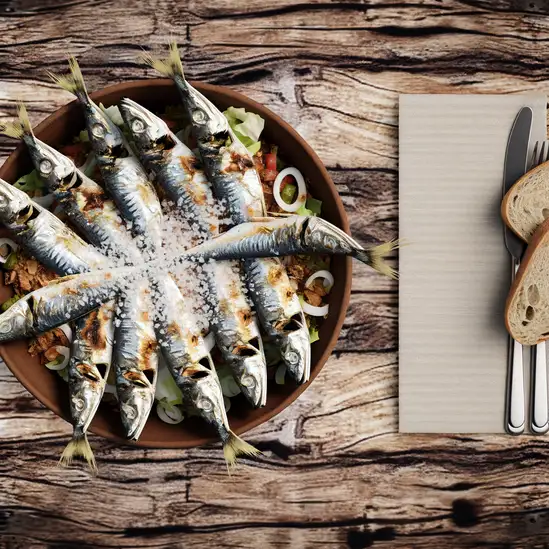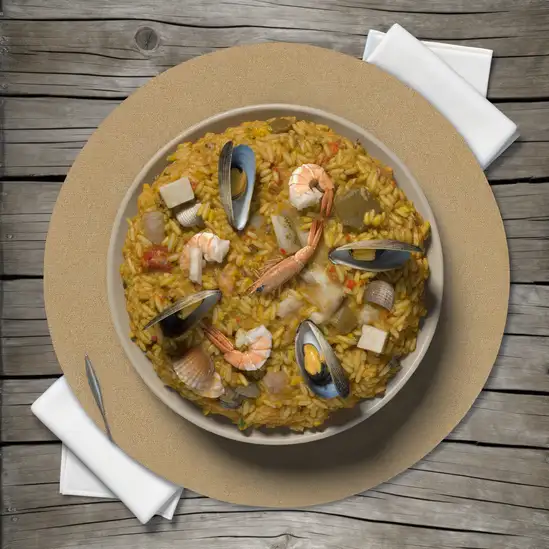



If you ever find yourself craving a place where the Atlantic breeze carries a salty freshness and the rhythm of the waves sets a soothing soundtrack,Figueira da Foz is where you want to be. This coastal town has a laid-back charm that instantly wraps around you like a warm,familiar blanket. Strolling along its expansive sandy beach,you’ll feel the fine grains between your toes and hear the distant laughter of families and surfers catching the perfect wave. The air smells faintly of seaweed and grilled sardines from nearby beachside cafés,inviting you to slow down and savor the moment. What makes Figueira da Foz truly special is its blend of old-world Portuguese character and vibrant seaside energy. The town’s streets are dotted with pastel-colored buildings,lively markets,and cozy tavernas where locals chat over glasses of vinho verde. There’s a genuine friendliness here that makes you feel like you’re part of the community,even if you’re just passing through. Don’t miss the historic casino,a beautiful relic from the 1940s,where you can soak in a bit of glamour and nostalgia. Beyond the beach,the city pulses with a creative spirit—art galleries,music festivals,and fresh seafood restaurants that serve up the catch of the day with a side of ocean views. Whether you’re sipping a bica in a sunlit café or wandering the marina at sunset,Figueira da Foz invites you to slow down,breathe deeply,and enjoy the simple pleasures of life by the sea.
The information on this page is currently being reviewed by Tripkliq and should be used as a guide only
Eng word: Hello
Eng pronunciation: Oh-lah
Local language: Olá
Eng word: Goodbye
Eng pronunciation: Ah-deh-oosh
Local language: Adeus
Eng word: Thank you
Eng pronunciation: Oh-bree-gah-doo
Local language: Obrigado
Eng word: How much
Eng pronunciation: Kwahn-too koos-tah
Local language: Quanto custa
Eng word: Toilet
Eng pronunciation: Bahn-yay-roo
Local language: Banheiro
Eng word: Help me
Eng pronunciation: Ah-zhoo-dee mee
Local language: Ajude-me
Eng word: Yes
Eng pronunciation: Seem
Local language: Sim
Eng word: No
Eng pronunciation: Now
Local language: Não
Eng word: Excuse me
Eng pronunciation: Kohm lee-sen-sah
Local language: Com licença
Figueira da Foz, often referred to as the 'Queen of Beaches,' was officially recognized as a town in 1771. Its strategic location at the mouth of the Mondego River made it an important hub for trade and fishing.
Built in 1884, the Grande Casino Peninsular is one of the oldest casinos in Portugal. It became a symbol of the city's vibrant cultural and social life, attracting visitors from all over the country.
Constructed in the 16th century, the Santa Catarina Fort was built to protect the Mondego River and the city from pirate attacks. Today, it stands as a historical landmark offering stunning views of the coastline.
In the 19th century, Figueira da Foz became a popular seaside destination for Portuguese aristocracy and wealthy families, thanks to its beautiful beaches and therapeutic sea baths.
The Mondego River, Portugal's longest river entirely within the country, has played a crucial role in the city's development, serving as a key route for trade and transportation since ancient times.
The Bairro Novo district, developed in the late 19th century, is known for its elegant architecture, bustling streets, and vibrant nightlife. It reflects the city's growth during its golden age as a resort town.
Founded in 1894, this museum houses an impressive collection of archaeological artifacts, fine arts, and ethnographic items, showcasing the rich history and culture of Figueira da Foz and the surrounding region.
The Clock Tower, located near the beach, is one of the city's most recognizable landmarks. It serves as a symbol of Figueira da Foz and a popular meeting point for locals and tourists alike.
The salt pans near the Mondego River have been in use since Roman times. They are a testament to the city's long history of salt production, which was once a major economic activity in the region.
In Figueira da Foz, the most common Power Adaptor is Type C, Type F.



A popular Portuguese dish made with shredded salted cod, onions, and thinly chopped fried potatoes, bound together with scrambled eggs.

Grilled sardines, often served during the summer months, seasoned with salt and accompanied by bread and salad.

A seafood rice dish cooked with a mix of shellfish and fish, flavored with tomato, onion, and aromatic herbs.

A traditional fish stew made with a variety of fresh fish, potatoes, and vegetables, seasoned with herbs and spices.

A hearty bean stew typically made with a variety of meats, including pork and beef, and flavored with spices and herbs.

A light and fluffy sponge cake, often enjoyed as a dessert, made with simple ingredients like eggs, sugar, and flour.
Lisbon feels like a city that’s been gently kissed by the sun and the sea,where every street corner hums with life and stories. Imagine wandering through narrow,cobbled alleys lined with pastel-colored buildings,their azulejo tiles catching the light just right. The air carries a mix of salty ocean breeze and the rich aroma of freshly baked pastéis de nata—those flaky custard tarts you’ll find in every bakery. There’s a rhythm here,a kind of laid-back energy that invites you to slow down and soak it all in.
You’ll hear the soulful strains of fado music drifting from cozy taverns,a haunting soundtrack that feels like the city’s heartbeat. Locals chat animatedly over glasses of vinho verde or ginjinha,a cherry liqueur that’s as sweet as the conversations. The city’s hills offer stunning views where terracotta rooftops spill down toward the Tagus River,and the sunlight shimmers on the water like a thousand tiny mirrors.
Lisbon’s charm lies in its blend of old and new—ancient trams clatter past sleek street art,and centuries-old castles overlook buzzing markets filled with fresh seafood and vibrant produce. It’s a place where history and modern life dance together effortlessly,inviting you to explore,taste,and feel its unique pulse. Trust me,once you’ve wandered through its neighborhoods and tasted its flavors,Lisbon stays with you long after you leave.
Imagine stepping into a city where every corner hums with a quiet,soulful energy—that’s Porto. It’s a place where the old world meets a lively,modern pulse,wrapped in the warm glow of terracotta rooftops and the shimmering Douro River. Walking through its narrow,cobbled streets,you’ll catch the scent of freshly baked pastéis de nata mingling with the salty breeze from the Atlantic. The city feels alive but unhurried,like it’s inviting you to slow down and savor each moment.
Porto’s character is deeply rooted in its history,yet it’s effortlessly cool. You’ll find colorful azulejo tiles telling stories on building facades,while locals chat animatedly over glasses of rich,ruby-red port wine in cozy,tucked-away taverns. The sound of Fado music drifts softly from a nearby café,adding a layer of melancholy beauty to the evening air. It’s a city that wears its heart on its sleeve—warm,genuine,and a little bit mysterious.
What really makes Porto stick with you is how it tastes and feels. From the first sip of a perfectly chilled glass of Vinho Verde to the crunch of a francesinha sandwich packed with layers of flavor,the city’s culinary scene is a delicious adventure. And when you climb up to the Dom Luís I Bridge at sunset,watching the city light up like a living painting,you realize Porto isn’t just a place to visit—it’s a place to feel alive.
Imagine stepping into a place where the ocean breeze carries the scent of blooming jacarandas and the distant hum of traditional Portuguese guitars fills the air—that’s Funchal for you. This city feels like a warm embrace,perched on the lush,rugged coastline of Madeira. Walking through its cobbled streets,you’ll notice vibrant markets bursting with fresh tropical fruits and the rich aroma of freshly baked bolo do caco bread. The colors here are alive:from the deep blue Atlantic stretching endlessly to the bright bougainvillea cascading down old stone walls.
Funchal’s charm lies in its blend of old-world grace and lively,modern spirit. Locals chat animatedly over glasses of Madeira wine in cozy tavernas,while street art peeks out from unexpected corners,telling stories of the island’s history and culture. The city pulses gently with a relaxed rhythm—you can feel it in the slow,deliberate pace of life and the genuine smiles of the people you meet.
Don’t miss the chance to ride the cable car up to Monte,where the views make your breath catch,or to wander through the botanical gardens,where exotic plants and butterflies create a quiet sanctuary. And when night falls,the harbor lights twinkle like stars,inviting you to savor fresh seafood paired with that sweet,fortified wine Madeira is famous for. Funchal isn’t just a destination; it’s a feeling you carry with you long after you leave.
If you ever find yourself dreaming of a place where the ocean breeze carries the scent of salt and blooming hydrangeas,Ponta Delgada is that kind of spot. It’s the lively heart of São Miguel Island in the Azores,and the moment you step into its cobbled streets,you feel this warm,welcoming pulse—like the city itself is breathing with you. The colorful buildings,with their intricate stonework and bright shutters,seem to tell stories of centuries past,while locals chat animatedly over coffee in cozy cafés that spill out onto sun-dappled squares.
Walking along the marina,you’ll hear the gentle slap of waves against boats and the distant call of seagulls,mingling with the laughter of children playing nearby. The air is fresh,tinged with the promise of adventure,whether you’re about to explore volcanic craters or dive into a plate of freshly caught seafood. Speaking of food,don’t miss trying the local cozido—a stew slow-cooked underground by volcanic heat,rich with flavors that feel like a warm hug on a cool day.
What really makes Ponta Delgada special is its blend of old-world charm and vibrant island life. There’s a relaxed rhythm here,where time slows just enough for you to savor a glass of local wine while watching the sun dip behind the hills. It’s a place that invites you to linger,to explore,and to fall a little in love with the simple,beautiful moments that make travel unforgettable.
If you wander into Faro,you’ll immediately feel this laid-back,sun-soaked rhythm that’s both calming and quietly vibrant. It’s the kind of place where the old town’s cobbled streets invite you to slow down,and the scent of salty sea air mingles with the faint aroma of freshly baked pastries from a nearby café. Faro isn’t just a gateway to the Algarve; it’s a charming city with its own soul,where history whispers from every corner and locals greet you with genuine warmth.
Strolling through the city,you’ll notice the delicate play of light on the whitewashed buildings,the colorful tiles telling stories of centuries past. The cathedral’s bell tower offers a peaceful lookout,where you can watch fishing boats drift lazily on the Ria Formosa lagoon. At night,the city softens into a cozy glow,and the hum of conversation spills out from small tavernas where you can savor fresh seafood paired with a glass of crisp Portuguese wine.
What really makes Faro special is its blend of old-world charm and natural beauty. You can lose yourself in the maze of narrow streets,then hop on a boat to explore the nearby islands,feeling the breeze and hearing the gentle splash of waves. It’s a place that invites you to breathe deeply,taste slowly,and soak in moments that feel both timeless and refreshingly real.
Barcelona feels like a vibrant mosaic where every corner pulses with life and color. The moment you step onto its sun-drenched streets,you’re wrapped in a warm Mediterranean embrace—salt in the air,the distant hum of waves mingling with lively chatter from bustling cafés. The city’s energy is contagious,a blend of old-world charm and modern creativity that invites you to slow down and savor each moment.
Wandering through the narrow alleys of the Gothic Quarter,you’ll hear the soft clinking of glasses and the melodic strum of a street guitarist,while the scent of fresh-baked bread and roasting coffee drifts from cozy bakeries. Barcelona’s architecture is like a living art gallery—Gaudí’s whimsical buildings,with their undulating lines and vibrant mosaics,feel almost dreamlike against the bright blue sky. It’s a place where history and imagination dance together.
Food here is a celebration in itself. Imagine biting into a perfectly crispy,golden croqueta or savoring the rich,smoky flavors of a traditional paella,all washed down with a glass of chilled cava. The city’s markets,like La Boqueria,burst with colors and aromas—ripe tomatoes,fresh seafood,and fragrant herbs—that make you want to taste everything.
What makes Barcelona truly special is its spirit:a city that lives passionately,where locals and visitors alike gather to share stories,laughter,and the simple joy of being in a place that feels both timeless and alive. Trust me,once you’ve experienced it,you’ll carry a piece of Barcelona’s magic with you long after you leave.
Scammers may install skimming devices on ATMs to steal card information from unsuspecting tourists.
Tourists renting beach chairs, umbrellas, or other equipment may be charged excessive fees compared to locals.
Some taxi drivers may take advantage of tourists by overcharging or taking unnecessarily long routes to increase the fare.
Unlicensed individuals may pose as tour guides and charge tourists for inaccurate or low-quality tours.
In crowded areas, pickpockets may target tourists, especially in markets, beaches, or during festivals.
Some restaurants may add extra items to the bill or charge for items that were not ordered.
Vendors may sell counterfeit goods, such as fake branded items, at inflated prices, claiming they are authentic.
Portugal has decriminalized the possession of small amounts of drugs for personal use, including in Figueira da Foz. However, drug trafficking and public consumption are still illegal. Tourists found with small quantities may face administrative penalties, such as fines or mandatory counseling, rather than criminal charges. It is advised to avoid public drug use and adhere to local laws.
In Figueira da Foz, Portugal, smoking is prohibited in enclosed public spaces, workplaces, public transport, and certain outdoor areas such as near schools, hospitals, and sports facilities. Smoking is allowed in designated smoking areas, which are clearly marked. Tourists should be mindful of these restrictions to avoid fines.
Vaping is subject to similar regulations as smoking in Portugal. It is prohibited in enclosed public spaces, workplaces, and public transport. Some outdoor areas may also restrict vaping. Tourists should check for signage indicating vaping restrictions and avoid vaping in prohibited areas.
What are other people saying about Figueira da Foz?
Recent Social posts about Figueira da Foz
There is nothing to show you for now.